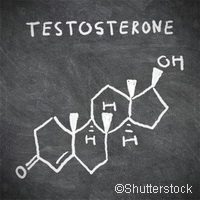Boost your testosterone for honesty
Testosterone - it is responsible for a number of the human body's activities, from muscle building to libido to hair growth. Though found in both men and women, it has traditionally been linked with male characteristics. However, it now appears that there is more to testosterone than meets the eye; it may also be responsible for fostering pro-social behaviour. This discovery was made by European researchers who received partial funding from the European Research Council (Starting Grant), and their results have been published in PLOS One. Testosterone has had a chequered past and been on the receiving end of certain misnomers. 'Testosterone has always been said to promote aggressive and risky behaviour and posturing,' reports Professor Dr Bernd Weber, a neuroscientist from the Centre for Economics and Neuroscience (CENS) at the University of Bonn in Germany. Recent studies have suggested, however, that testosterone may also increase pro-social behaviour or lead to less selfish behaviour in certain situations. This spurred the researchers on to investigate a link between testosterone and honesty. 'The disadvantage of many studies is, however, that they only correlate their subjects' testosterone level with their behaviour,' explains lead author Dr Matthias Wibral, adding that this approach only reflects statistical links and does not provide any insights into the causes for the behaviour. 'For testosterone does not only influence behaviour; behaviour, in turn, also influences hormone levels.' This led the CENS scientists to look for an experimental approach that would also allow deducing cause and effect. The scientists recruited 91 healthy men for a behavioural experiment. Out of this group of subjects, 46 were treated with testosterone by applying it to the skin in gel form. On the following day, endocrinologists from the Bonn University Hospitals checked whether the blood testosterone levels were indeed higher in these subjects than in the placebo group. The other 45 test subjects only received a placebo gel. 'Neither the subjects themselves nor the scientists performing the study knew who had received testosterone and who hadn't,' reports Dr Wibral. This was done to prevent behaviours from potentially being affected. The men were then invited to play a game of dice in separate booths. The higher their scores, the higher their monetary reward. 'These experiments were designed such that the test subjects were able to lie,' reports Professor Weber. 'Due to the separate booths, nobody knew whether they were entering their real scores into the computer, or higher ones in order to get more money.' However, the scientists were able to determine later whether the various test subjects had cheated or not. 'Statistically, the probability for all numbers on the dice to occur is identical,' explains the neuroscientist. 'So, if there are outliers in the higher numbers, this is a clear indication that subjects have been cheating.' The researchers compared the results from the testosterone group to those from the control group. 'This showed that the test subjects with the higher testosterone levels had clearly lied less frequently than untreated test subjects,' reports the economist Professor Dr Armin Falk, one of the CENS co-directors with Professor Weber. 'This result clearly contradicts the one-dimensional approach that testosterone results in anti-social behaviour.' He added that it is likely that the hormone increases pride and the need to develop a positive self-image. 'Against this background, a few euros are obviously not a sufficient incentive to jeopardize one's feeling of self-worth,' Professor Falk believes. 'Great taboos are attached to the phenomenon of lying. The Christian 8th Commandment, for example, forbids "bearing false witness",' Professor Falk says. 'However, lies play a great part both in the business world as well as in personal life.' He adds that people frequently do not just lie to their own advantage, but also in order to protect or benefit others. This type of behaviour and its economic effects have been studied often. 'However, there are very few studies on the biological causes of lying,' the Bonn economist explains. 'In this regard, this study has allowed us to make a big step forward.'For more information, please visit:Centre for Economics and Neuroscience (CENS), University of Bonn:http://www.cens.uni-bonn.de/PLOS One:http://www.plosone.org
Countries
Germany



